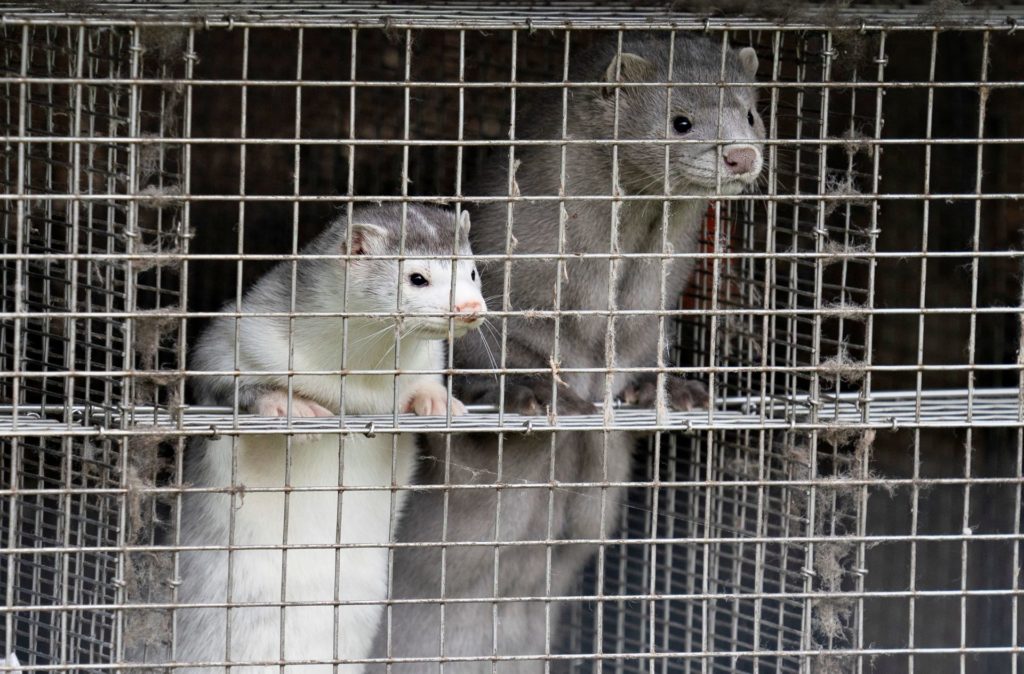Following the discovery of COVID-19 outbreaks on mink farms throughout the EU, animal welfare organisations and EU parliamentarians call for an end to fur farming.
A mutation of the coronavirus transmissible from minks to humans was first identified in the Netherlands through whole genome sequencing and was also found in Denmark. In Denmark, the discovery led to the culling of its entire herd of more than 15 million mink. Mink, however, are still farmed in several EU member states.
Eight member states have officially identified COVID-19 positive animals on mink farms: Denmark (289 farms), France (1 farm), Greece (12 farms), Italy (1 farm), Lithuania (1 farm), Netherlands (70 farms), Spain (1 farm), Sweden (13 farms). COVID-19 positive mink have also been found on a fur farm in Poland.
Animal welfare and public health concerns associated with fur production were discussed yesterday (8 December) at a virtual conference organised by Eurogroup for Animals, Human Society International/Europe and Fur Free Alliance in collaboration with the European Parliament’s Intergroup on the Welfare and Conservation of Animals.
“Confining wild animals in small wire cages for the trivial purpose of fur production should be consigned to the past,” said Dutch MEP Anja Hazekamp (GUE/NGL), Animal Welfare Intergroup President and Vice-Chair of the Parliament’s Environment Committee.
The Netherlands adopted a ban on fur farming already in 2013. The industry was due to be phased-out by 1st January 2024 but the government was forced to an early shutdown of its mink industry due to continuing outbreaks of COVID-19 on its remaining fur farms.
“Fur farming is now over in my country. I look forward to the day when we can end the suffering of all animals on fur farms and see a completely fur-free Europe,” Hazekamp added.
That day may not be far away. Fur farming has already been prohibited or is the process of being phased out in several EU member states. The process could be accelerated with EU legislation.
“In the past months, the public has been confronted with the fact that fur farms are not only places of enormous animal suffering, but they can also act as virus factories, said Dr Joanna Swabe, Director at Humane Society International/Europe.
“The living conditions on fur farms, which confine wild species at high densities and in close proximity, fail to satisfy the animals’ most basic welfare needs, leaving them highly stressed, which can lead to their immune systems being compromised,” she explained.
“The outbreaks of the SARS-CoV-2 virus on fur farms have confronted us with the terrifying reality that fur factory farms create ideal conditions for diseases to propagate from one animal to another, and for viruses to mutate into forms potentially virulent to humans.”
The Brussels Times

